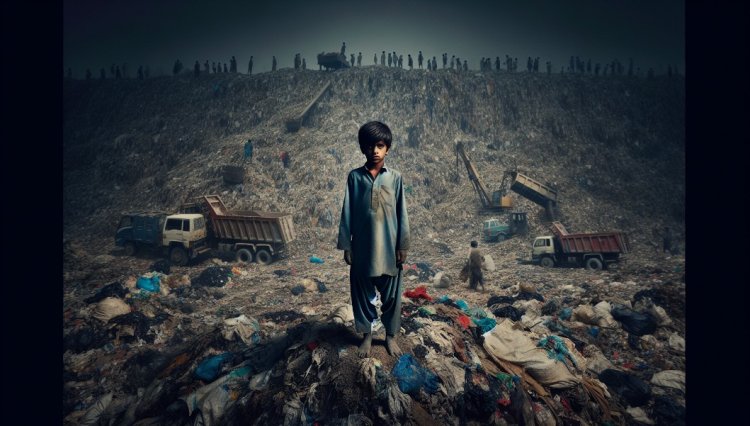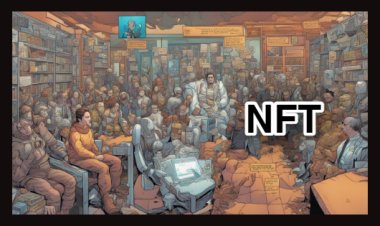The Hidden Crisis: Child Sexual Exploitation in Pakistan
Unmask the shadows: Uncover the devastating reality of child sexual exploitation in Pakistan. A call for urgent action, awareness, and protection for vulnerable children.

Introduction
Pakistan is not only an important Muslim nation but also a country grappling with a hidden crisis: child sexual exploitation. Despite being a nuclear power and a democracy, Pakistan has turned a blind eye to the sexual exploitation of thousands of poor and vulnerable children. It is an issue that brings shame and denial to society. This blog aims to shed light on the crisis and bring attention to the plight of these children.
-
Pakistan is a significant Muslim nation, known for its role in global affairs.
-
Child sexual exploitation is prevalent in the country, affecting millions of children.
-
There is a pervasive culture of shame and denial surrounding this issue.
-
The purpose of this blog is to raise awareness and draw attention to the crisis.
Forced child labour in Pakistan
Forced child labour is a harsh reality in Pakistan, with poverty being the main driving force behind this crisis. It is estimated that over four million children in Pakistan are forced to work at a young age due to poverty. Out of these children, up to one and a half million are living on the streets with no home or support.
Living conditions for street children in Pakistan are extremely challenging. These children often lack access to basic necessities such as food, clean water, and shelter. They are exposed to various dangers, including violence, drug abuse, and exploitation.
One of the most dangerous forms of work for these children is picking up garbage for recycling. They spend long hours—up to 14 hours a day—scavenging through gutters and waste dumps, earning very little money in return. This work exposes them to health hazards and diseases.
Poverty has a profound impact on the lives of these children. They are deprived of education, which limits their future prospects and perpetuates the cycle of poverty. They are often forced into labour at a young age, robbing them of their childhood and the opportunity to play and learn like other children.
Furthermore, poverty pushes these children into vulnerable situations, making them targets for exploitation and abuse. They are at risk of being trafficked, forced into prostitution, or used as cheap labour. The denial and shame surrounding this issue in Pakistani society further perpetuates the cycle, as it prevents effective intervention and protection for these vulnerable children.
It is crucial to address the root causes of child labour in Pakistan, such as poverty and a lack of access to education. Efforts should focus on providing support and resources to families living in poverty, ensuring that children have access to quality education, and implementing and enforcing laws to protect children from exploitation. Only through concerted efforts can we hope to break the cycle of forced child labour and give these children a chance at a better future.
Sexual Exploitation in Peshawar
Peshawar, the capital city of the Khyber Pakhtunkhwa province in Pakistan, is plagued by the sexual exploitation of street children. These vulnerable children face limited protection and resources, making them easy targets for exploitation.
Limited protection and resources for street children in Peshawar
Despite being a significant Muslim nation and a democracy, Pakistan has failed to address the issue of child sexual exploitation adequately. There is a pervasive culture of shame and denial surrounding this issue, which prevents effective intervention and protection for these vulnerable children.
Moreover, there is a lack of support and resources for street children in Peshawar. With an estimated five thousand street children in the city alone, there are not enough shelters or facilities to accommodate them. Charitable donations, which provide limited funding for shelters, are inadequate to meet the needs of all these children.
The struggles faced by street children in finding a safe place to sleep
One of the major challenges faced by street children in Peshawar is finding a safe place to sleep. Many children end up spending their nights at the city's main bus terminal, where beds are laid out in the open for drivers to rest between journeys. However, these makeshift hostels provide little security and safety for the children.
Without proper shelter, these children are exposed to various dangers, including violence, drug abuse, and further exploitation. They are forced to fend for themselves, with no protection from the authorities or support systems.
The role of Hassan Deen in exploiting street children
Hassan Deen, the owner of a makeshift hostel at the bus terminal, has been exploiting street children in Peshawar. He not only uses the children to work for him but also admits to engaging in sexual activities with them. This further highlights the vulnerability of street children and the lack of protection they receive.
Deen's actions are not isolated incidents but reflect a larger problem of sexual exploitation happening at bus and truck terminals across Pakistan. Drivers and conductors often keep boys on a permanent basis as helpers or apprentices, subjecting them to ongoing abuse and exploitation.
The inadequate support provided by charitable donations
The shelters and facilities for street children in Peshawar heavily rely on charitable donations for funding. However, these donations are insufficient to meet the needs of all the children in need. As a result, many children are left without proper support and are forced to navigate the dangerous streets alone.
It is crucial to address the lack of protection and resources for street children in Peshawar. Efforts should focus on providing safe shelters, increasing funding for support services, and implementing and enforcing laws to protect these vulnerable children from sexual exploitation. Only through comprehensive and sustained efforts can we hope to address this crisis and protect the rights of these children.
Abuse at Bus and Truck Terminals
The prevalence of sexual abuse at bus and truck terminals is a hidden crisis in Pakistan. Despite being a significant Muslim nation and a democracy, the country has turned a blind eye to the sexual exploitation of thousands of poor and vulnerable children. This issue brings shame and denial to society, perpetuating the cycle of abuse.
A culture exists at bus and truck terminals where boys are kept as helpers or apprentices, subjecting them to ongoing abuse and exploitation. Drivers and conductors often engage in sexual activities with these boys, using them for their entertainment. This culture of keeping boys further contributes to the prevalence of abuse at these terminals.
Zia Arwan, a human rights lawyer, has been fighting for the rights of abused children in Pakistan. He has highlighted the alarming scale of child sexual exploitation, with hundreds of children being raped, sold, trafficked, and forced into prostitution every day. Unfortunately, society frequently underestimates the issue, which results in a lack of effective intervention and protection for these vulnerable children.
Charitable donations play a significant role in providing shelters and facilities for street children in Peshawar, including those at bus and truck terminals. However, these donations are insufficient to meet the needs of all the children, leaving many without proper support and vulnerable to exploitation. The inadequate support from charitable donations exacerbates the crisis and highlights the urgent need for more comprehensive solutions.
Addressing the lack of protection and resources for street children at bus and truck terminals is crucial. Efforts should focus on providing safe shelters, increasing funding for support services, and implementing and enforcing laws to protect these vulnerable children from sexual exploitation. Only through comprehensive and sustained efforts can we hope to break the cycle of abuse and protect the rights of these children.
Prostitution and drug addiction
Prostitution and drug addiction are two interconnected issues that street children in Pakistan often face. The link between street children and prostitution is a distressing reality. Due to poverty and homelessness, many street children are forced into prostitution as a means of survival. They are vulnerable and targeted by individuals who exploit their desperate circumstances.
Living on the streets exposes these children to numerous dangers and risks. They lack access to basic necessities such as shelter, clean water, and food. They are often subjected to violence, drug abuse, and further exploitation. The streets become their only source of income and safety, but it comes at a steep price.
Afsal, a social worker, has taken it upon himself to help street children like Naím overcome drug addiction. The prevalence of drug use, particularly heroin, is widespread in Peshawar. According to reports, there are over a million heroin users in Pakistan, and nearly 30% of those who inject the drug are HIV positive.
The efforts made by Afsal to help Naím break free from drug addiction are commendable. Through counselling, support, and rehabilitation, Afsal is providing Naím with the opportunity for a better future. However, the road to recovery is challenging, and Naím's journey is just beginning.
Peshawar, being close to the Afghan border, serves as a gateway for drugs, making them easily accessible to vulnerable street children. They are introduced to drugs at an early age, perpetuating a cycle of addiction and further exposing them to health risks and exploitation.
Prostitution has become commonplace for many street children as a means of survival. It is a dangerous lifestyle that puts them at risk of sexually transmitted infections, including HIV. The lack of protection and resources for these children exacerbates the problem.
The prevalence of heroin use and HIV in Peshawar is a concerning issue that needs urgent attention. Efforts should focus on providing comprehensive support systems, including drug rehabilitation centres and counselling services, to help street children overcome addiction and reintegrate into society. Additionally, awareness campaigns about the dangers of drug abuse and the importance of safe practices should be implemented.
It is essential to address the root causes that push street children into prostitution and drug addiction, such as poverty, a lack of education, and limited support systems. By providing these vulnerable children with access to education, safe shelters, and protective laws, we can break the cycle of exploitation and give them a chance at a better future.
Societal Factors and Denial
Child sexual exploitation in Pakistan is not only influenced by individual factors but is also deeply intertwined with societal factors and denial. These factors contribute to the prevalence of abuse and hinder effective intervention and protection for vulnerable children.
Gender inequality and its impact on child abuse
Gender inequality plays a significant role in perpetuating child abuse in Pakistan. Traditional cultural values and perceptions of purity, which prioritise the protection of women, contribute to a society that turns a blind eye to the sexual exploitation of boys. The rigid segregation of genders and the limited rights and visibility of women create an environment where men prey on vulnerable children, perpetuating the cycle of abuse.
Public attitudes towards child sexual abuse
Public attitudes towards child sexual abuse in Pakistan often involve denial and minimization of the issue. A lack of awareness and understanding, coupled with societal taboos and shame, prevents effective intervention and protection for abused children. A 2010 UNICEF report revealed that one-third of surveyed men did not consider child sexual abuse to be bad, let alone a crime or a sin. This denial further contributes to the underreporting and underestimation of the problem.
The role of cultural values and perceptions of purity
Cultural values that prioritise purity and protection of women contribute to the sexual exploitation of street children in Pakistan. The segregation of sexes and limited visibility of women create an environment where men prey on vulnerable boys. The perception that boys are less valuable than girls leads to a lack of protection and resources for street children, perpetuating their vulnerability to abuse.
Reports highlighting Pakistan's poor record on equal opportunities for women
Pakistan's poor record on equal opportunities for women exacerbates the issue of child sexual exploitation. The World Economic Forum ranked Pakistan as the second-worst country in the world when it comes to equal opportunities for women. This gender inequality contributes to a society that neglects the rights and protection of vulnerable children, particularly boys.
In conclusion, societal factors and denial play a significant role in the prevalence of child sexual exploitation in Pakistan. Gender inequality, public attitudes, cultural values, and Pakistan's poor record on equal opportunities for women all contribute to an environment that perpetuates abuse and hinders effective intervention and protection for vulnerable children. Addressing these societal factors and raising awareness is crucial to breaking the cycle of abuse and providing a better future for these children.
Lack of Government Action
While there are existing laws in Pakistan to protect children from sexual exploitation, the government has failed to implement and enforce these laws effectively. This lack of action has perpetuated the crisis and left thousands of vulnerable children without adequate protection.
Existing laws to protect children in Pakistan
Pakistan has laws in place to safeguard children from sexual exploitation. These laws include the Pakistan Penal Code, the Prevention of Child Abuse Act, and the National Commission for Child Welfare and Development Act. These laws aim to hold perpetrators accountable and provide support and protection to victims.
Failure of authorities to implement and enforce these laws
Despite the existence of these laws, the authorities have shown a lack of will and effort to effectively implement and enforce them. Law enforcement agencies often prioritise other issues, such as terrorism, and overlook the urgent need to address child sexual exploitation.
Furthermore, corruption and a lack of resources within the justice system hinder the effective implementation of these laws. Perpetrators often go unpunished, and victims are left without justice.
Imran Khan's acknowledgement of the problem
Imran Khan, a prominent politician in Pakistan, has acknowledged the extent of the crisis and expressed his embarrassment over the government's failure to protect children. He has pledged to establish a task force to address child sexual exploitation and take action against perpetrators.
However, it remains to be seen whether these promises will translate into concrete actions and meaningful change for the victims.
Challenges faced by law enforcement agencies in protecting children
Law enforcement agencies in Pakistan face numerous challenges in effectively protecting children from sexual exploitation. The prevalence of terrorism and limited resources divert their attention and resources away from child protection efforts.
Additionally, societal attitudes, such as denial and minimization of the issue, pose obstacles to law enforcement agencies. Lack of awareness and understanding of child sexual exploitation contribute to underreporting and underestimation of the problem.
Addressing these challenges requires a comprehensive approach that includes increased funding and resources for law enforcement agencies, training on child protection, and changing societal attitudes through awareness campaigns.
Hope for the Future
The issue of child sexual exploitation in Pakistan is urgent and requires immediate action. The protection of street children is crucial to ensuring their safety and well-being. Efforts should be made to provide them with shelter, education, and support to break the cycle of abuse and exploitation.
In response to the crisis, there is a need for the establishment of a task force dedicated to combating child sexual exploitation. This task force should focus on identifying and prosecuting perpetrators, providing support to victims, and implementing and enforcing laws that protect children from exploitation.
One potential avenue for raising awareness and addressing the crisis is through blogs and other forms of media. By shining a light on the issue, raising awareness, and sharing the stories of survivors, we can encourage a collective effort to address the crisis and ensure the protection of street children.
This blog aims to contribute to this collective effort by providing information and raising awareness about the issue of child sexual exploitation in Pakistan. By spreading the word and sharing this blog, we can reach a wider audience and inspire action.
It is important to recognise that addressing the crisis requires a collective effort from individuals, communities, organisations, and the government. By coming together, we can work towards creating a safer environment for street children and ensuring that their rights are protected.
In conclusion, there is hope for the future of street children in Pakistan. By taking urgent action, establishing a task force, raising awareness, and working collectively, we can make a difference in the lives of these vulnerable children. Let us join hands and strive towards a future where every child is safe, protected, and given the opportunity to thrive.
Conclusion
The ongoing crisis of child sexual exploitation in Pakistan is a heartbreaking reality that cannot be ignored. Thousands of poor and vulnerable children are subjected to sexual exploitation, living in dire conditions on the streets with no support or protection.
The individual stories and struggles of street children highlight the urgency of the situation. These children are forced into labour, exposed to violence and abuse, and pushed into dangerous situations like picking up garbage for recycling. Their lives are filled with poverty, limited access to education, and constant vulnerability.
Immediate action and support are needed to address this crisis. Efforts should focus on addressing the root causes of child labour and exploitation, such as poverty and a lack of education. Providing support and resources to families living in poverty, ensuring access to quality education for all children, and enforcing laws to protect children from exploitation are crucial steps in breaking the cycle of abuse.
Despite the grim reality, there is potential for change and hope for a better future. By raising awareness, providing safe shelters, and implementing comprehensive support systems, we can protect the rights of these vulnerable children and give them a chance at a brighter future.
It is essential for individuals, communities, organisations, and the government to come together and work towards creating a safer environment for street children in Pakistan. Together, we can make a difference and ensure that every child is safe, protected, and given the opportunity to thrive.



 admin
admin 










